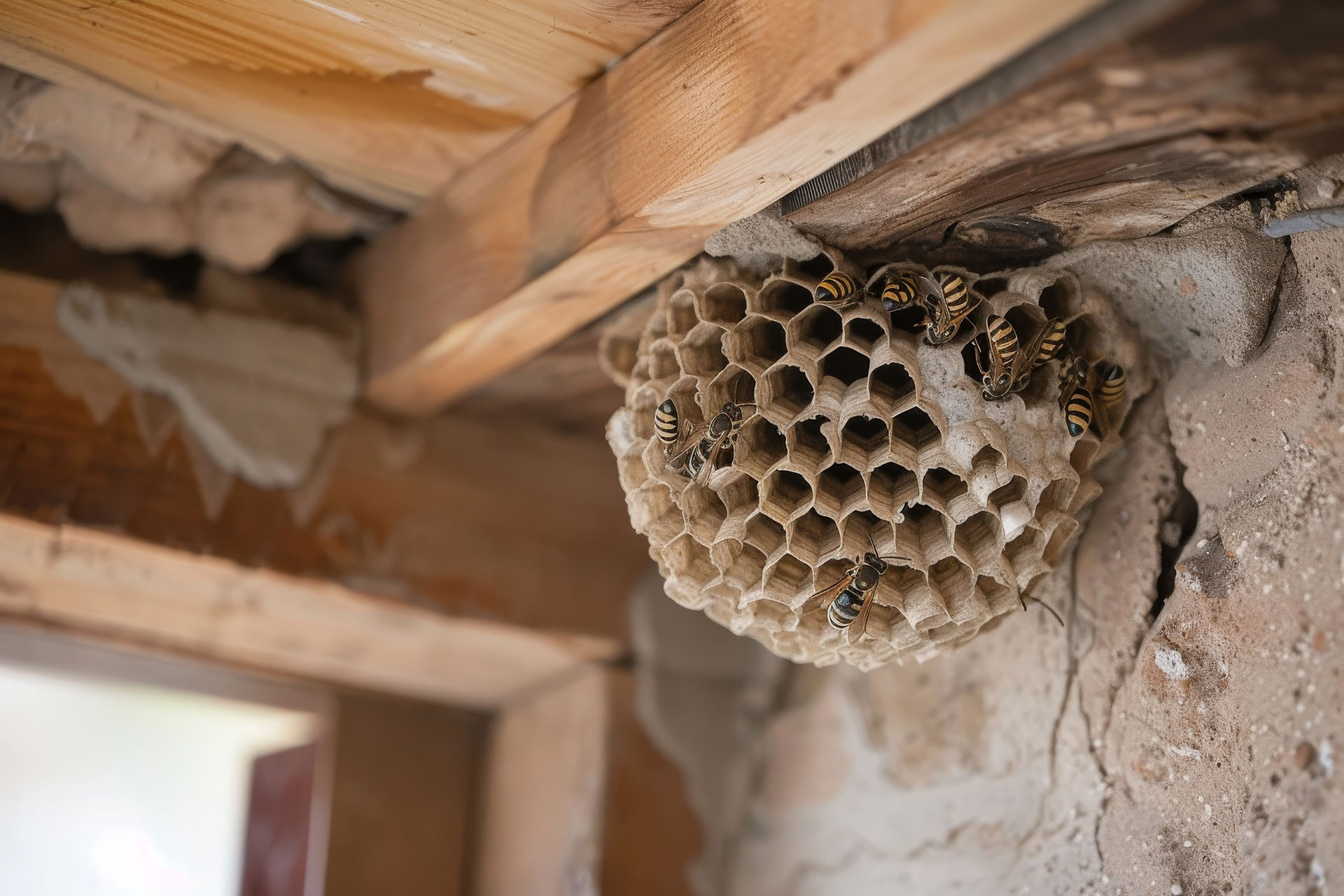How to Prevent Bee and Wasp Infestations During Fall

As the fall season brings cooler weather, bees and wasps begin seeking shelter to build nests. Unfortunately, this often means they look for warm spaces in and around your home. Protecting your property from stinging insects during this time is essential to maintaining safety and peace of mind.
Tips to Seal Entry Points
To keep bees and wasps from building nests inside your home, ensure that all possible entryways are sealed:
- Seal Cracks and Gaps: Bees and wasps can easily squeeze through tiny gaps around windows, doors, and foundation cracks. Take a look around your home and inspect these areas and fill any openings with weather-resistant caulk or expanding foam.
- Install Mesh Screens: Chimneys, attic vents, and air ducts are common entry points for bees and wasps. Use fine mesh screens to cover these areas and prevent insects from sneaking in.
- Check Attics and Eaves: Bees and wasps love secluded spaces like attics and eaves to build their nests. Regularly inspect these areas for gaps, especially where rooflines meet walls, and seal any holes that could provide access.
Removing Potential Nesting Sites
In addition to sealing off your home, it’s important to make your property less attractive to nesting bees and wasps:
- Keep Outdoor Areas Clear: Piles of wood, rotting logs, and overgrown vegetation provide the perfect hiding spots for wasps and other stinging insects. Regularly clear these materials away from your home.
- Trim Trees and Shrubs: Keeping vegetation trimmed and away from the house can reduce the likelihood of bees or wasps finding a sheltered spot to nest.
- Secure Trash and Food: Wasps are particularly drawn to food and garbage. Keep outdoor trash bins sealed tightly, and don’t leave food scraps outside, especially after outdoor activities or gatherings.
Not All Bees Are Bad: Understanding the Difference
While wasps and hornets can be dangerous, not all bees should be removed. Many bees, such as honeybees and bumblebees, play an important role in pollination and the ecosystem. Here are some ways to identify whether a nest should be relocated rather than exterminated:
- Honeybees: These bees are typically small, fuzzy, and golden-brown. They are non-aggressive and only sting when provoked. If you find a honeybee hive, consider relocation instead of removal, as honeybees are vital to pollination and agriculture.
- Bumblebees: These bees are larger and rounder than honeybees, with more visible black and yellow stripes. Like honeybees, they are important pollinators and usually non-aggressive.
- Invasive Bees and Wasps: Invasive species, like the European hornet or aggressive yellow jackets, can pose a threat to your home and health. Yellow jackets, for instance, are smaller and more aggressive, often nesting in the ground or inside walls. They are best removed by a professional.
How to Identify Invasive Species
- Wasps and Hornets: Wasps and hornets tend to be slimmer and shinier than bees, with more defined waistlines and smooth bodies. They are more aggressive, especially in the fall, as their food sources become scarce.
- Yellow Jackets: These wasps are notorious for building nests in the ground and are highly aggressive. They can sting multiple times and are known to attack if their nest is disturbed.
If you’re unsure whether you’re dealing with a helpful bee species or an aggressive wasp, it’s always best to call in a professional like The Bee Hunter.
The Bee Hunter: Expert Bee and Wasp Removal in Massachusetts
For those experiencing a bee or wasp infestation, it’s essential to act quickly to avoid stings and property damage. The Bee Hunter of Massachusetts, led by Rusty Dillon, is fully certified and insured to safely remove nests and colonies from your property. Whether you’re dealing with bees, hornets, yellow jackets, or wasps, Rusty can provide 24/7 rapid response and removal services to protect your home.
If you have unwanted bees, wasps, or other stinging insects, don’t hesitate to reach out to The Bee Hunter. Rusty will safely remove hives and nests, ensuring the safety of your family and pets. For a free estimate, contact him at 508-471-6437.
